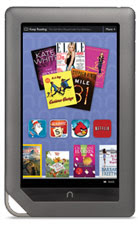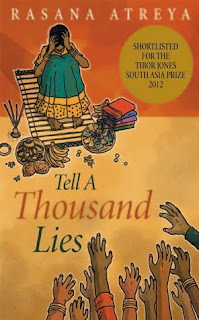 |
| Seth Godin |
I know I just posted an article on Seth Godin and I don't usually do two articles in a row on someone, but his interview over at The Great Discontent was just too good not to mention! Here's a sampling of what Seth had to say:
On Seth's journey to becoming an entrepreneur:
In the years that followed [getting married, moving to New York and starting a company], I just failed and failed and failed and failed. I got 900 rejection letters in the mail from book publishers. I would go window shopping at restaurants and go home and eat macaroni and cheese. It was a very long slog, right on the edge of bankruptcy for almost eight years. I did a whole bunch of books as a book packager; I did almanacs; I did books on personal finance; I did the Professor Barndt’s On-the-Spot Spot and Stain Removal Guide; I did a book which I’m embarrassed about called Email Addresses of the Rich and Famous (laughing).Creativity and childhood:
I think “creativity” is better described as failing repeatedly until you get something right.
. . . .
In terms of creativity, the really formative thing that happened to me is that I started teaching style canoeing in Canada at a very old co-ed summer camp in a national park , which I still do every year—I’ve been doing it for 42 years. What I discovered is that if you’re in a situation where people don’t have to engage with you—because at this camp they could do anything they wanted—you have to figure out a way to attract them. The number one way I found to attract people was to help them connect with their dreams. And so, when I was 17, I started a cycle of creative ways to put on enough of a show in front of people that they would choose to engage in that to achieve their dreams. I’ve basically been doing the same thing ever since, except that there are no canoes in New York City.
Heros vs. mentors
I think that heroes are more important than mentors. A hero is somebody who you can emulate; somebody who raises the bar for you. Heroism scales, so one person can be a hero for a lot of people. Mentoring is over-rated in that there’s this myth that they will pick you, cover for you when you make mistakes, encourage you, and be at your side until you become your true, best self. There are very few of those relationships in the world.
On taking big risks:
When I finally had my book packaging company working after seven or eight years of struggling, I had ten employees and we were finally making a profit. Two-thirds of our revenue came from one company and they were jerks. They were making our lives miserable and what we were becoming was the kind of company that was good at working with difficult clients. I didn’t want to become that kind of company, so I fired our biggest client—the one who accounted for more than half our revenue. I said, “Here. Here’s the project we spent four years building. You can have it. Keep it.” It could have wiped us out, but instead, the group was so energized that they made up all the revenue in the next six months.
On social responsibility:
I have all the toys and stuff and detritus that I need. Getting more stuff is not what I’m trying to do. I wonder, “Who can I impact today and how can I do it in a way that in four years from now, they’ll be glad I did?”
Seth's one piece of advice: pick yourself
There’s a picture that I just saw online two days ago. Monday I have this seminar I’m running for free for college students and I’m going to show them this picture before we start. It’s a picture of someone graduating from college. You can’t tell, but you can guess that they’re probably $150,000 in debt. Written on the top of their mortarboard with masking tape it says, “Hire me.” The thing about the picture that’s pathetic, beyond the notion that you need to spam the audience at graduation with a note saying you’re looking for a job, is that you went $150,000 in debt and spent four years of your life so someone else could pick you. That’s ridiculous. It really makes me sad to see that. The opportunity of a lifetime is to pick yourself. Quit waiting to get picked; quit waiting for someone to give you permission; quit waiting for someone to say you are officially qualified and pick yourself. It doesn’t mean you have to be an entrepreneur or a freelancer, but it does mean you stand up and say, “I have something to say. I know how to do something. I’m doing it. If you want me to do it with you, raise your hand.”
Seth's typical day:
Ha! There isn’t one. That’s on purpose. If you have a typical day, I think that that’s something you should work on.
Books:
You know, I don’t know how to pick one book. I tend to read mostly non-fiction leavened with trashy fiction and science fiction. Back when Neil Stephenson was good, Snow Crash and The Diamond Age were two of the best books ever. I probably read four or five nonfiction books a week—everything from The Peter Principle, which I started reading 35 years ago when I was just a kid, to books that have shown up lately that make me sit up straight. Kevin Kelly is three for three; his new book, What Technology Wants, is an absolute must-read and will change the way you see the world.
On the kind of legacy he hopes to leave:
I think the goal I have in my work is not to be remembered, but for the people who use the work I did to be remembered instead.
These are just excerpts, I'd encourage everyone to read Seth Godin's entire interview: Seth Godin. Thanks to SwissMiss.com for passing on the link.
Other articles you might enjoy:
- Amanda Hocking's Unusual Writing Schedule
- Indie Writers: 10 Things Not To Do
- 10 Tips For Decluttering Your Life and Increasing Creativity









